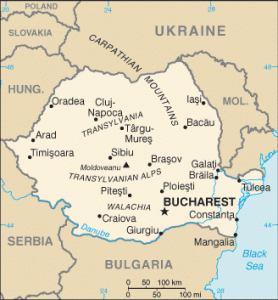by Camilla Azzini
Countries of Origin – Romania
Romania is the seventh most populous of the 27 EU member Countries. The Country’s economy is in a post-transitional phase, with an unemployment rate of 5% and an economically active population of 9,900,000 people. The ratio of migrants to total population is extremely high at around 10% (CARITAS). The reasons given by those that emigrate are poverty and the hope of finding better working conditions in other countries: currently, minimum wages in Rumania are around 150 Euro and the average salary is around 250 – 350 Euro. The extremely low purchasing power of their money further aggravates this situation.
According to UNICEF-Alternative Sociale Asociation (AAS) estimates, Rumania has some 350,000 so-called children left behind. The number of left behind minors amounts to 7% of the total Rumanian population between the ages of 0 and 18 years. 157,000 children have only fathers working abroad, while 67,000 have only mothers working abroad. More than one third, however, or some 126,000 children, have been deprived of both parents. Some 400,000 children have experienced that particular form of solitude for at least part of their lives.
In other words, out of a total of 5 million Rumanian children, some 750,000 of them have been affected to a greater or lesser extent by the departure of their parents.
52% of these so-called children left behind, in other words 180,000 children, live in rural areas where it is more common for mothers to go away, unlike in the larger cities where it is more common for fathers to leave. Half of the left behind children are younger than 10 years of age. Of these, more than half are between 2 and 6 years of age and 4% of them are less than one year old.
16% of these children have spent more than one year of their young lives far away from their parents. Indeed, 3% of them have been left for more than four years.


